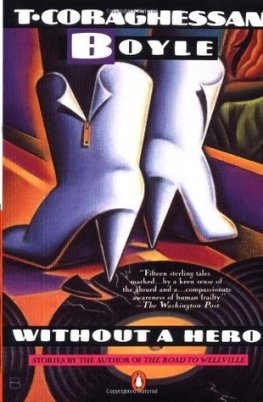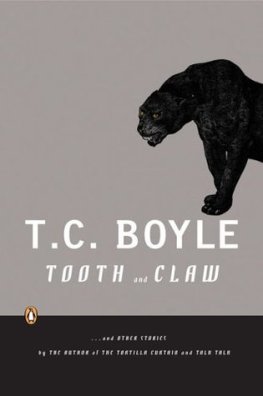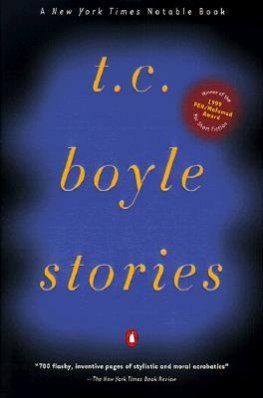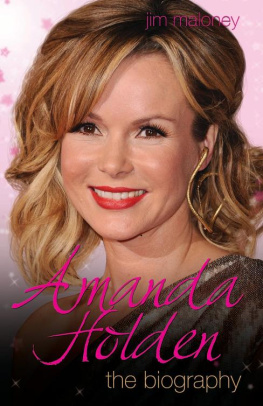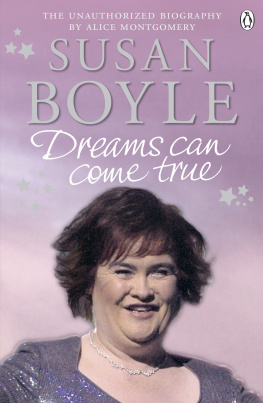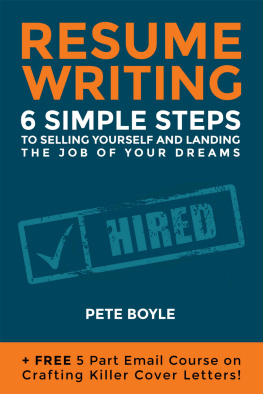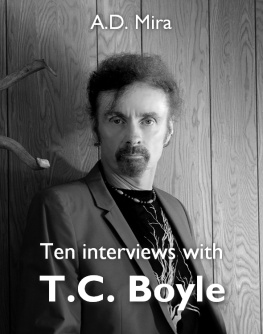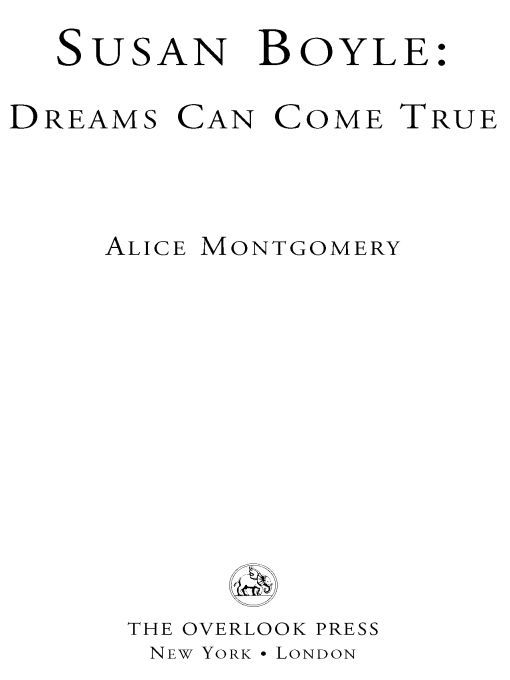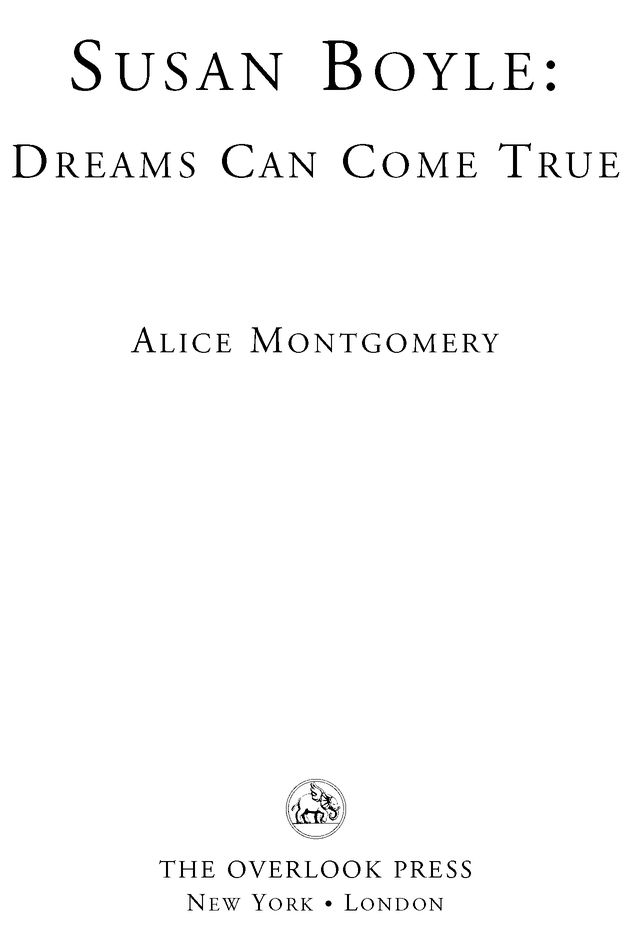Table of Contents
Prologue: New York, November 2009
The Big Apple had never seen anything like it. Susan Boyle, the mild mannered Scottish spinster who had sprung from complete obscurity only seven months previously, held the crowd in thrall. Dressed in an elegant black coat, and wearing a red knitted scarf, a look that was becoming her trademark, she stood in front of a huge crowd at the Rockefeller Center, where she was performing live on NBCs Today show. Many in the crowd, who were giving her the kind of welcome more commonly reserved for superstars, were also wearing red scarves: it was a way of showing support and solidarity. It was a way of showing SuBo, as she was now affectionately known, that they were true fans.
Although she still didnt entirely fit the image many people had of a performer who was set to sell in the millions, Susan looked like a different woman from the one who had staggered viewers of Britains Got Talent just a short while earlier. Her hair, previously wild and frizzy, had been trimmed into an elegant brunette bob; her eyebrows had been tamed; her face carefully made up and scarlet nail varnish glittered on her fingernails. She was transformed by the power of her growing stardom, her talent and the deep reserve of affection the public felt for her.
This, a thirty-minute live set for Today, was the culmination of a month-long publicity drive to herald the release of Susans first album, and although it was the kind of occasion that would have tested the nerves of many a seasoned performer, she carried it off with aplomb. Today show hosts Matt Lauer and Meredith Vieira chatted to Susan in front of the cheering crowd: it was a great achievement, she acknowledged, to have come from a small town in Scotland to where she was now - and all in such a short space of time. It feels very surreal, as if its not really happening, she went on. Ive grown up a bit and become more of a lady. I dont swing my hips as much.
Susans replies to her hosts questions werent lengthy - when she spoke she still had a little shyness about her - but there was no awkwardness either, especially given that she was standing in front of a crowd brandishing placards bearing her name and various slogans associated with her - I dreamed a dream too being a typical example. All things considered, Susan seemed remarkably calm, composed even. Then the moment everyone had been waiting for happened. As Susan stepped in front of the microphone, she was almost glowing; she opened her mouth and burst into song. Her remarkable voice soared above the crowd and into the New York sky as she sang I Dreamed A Dream, followed by the Rolling Stones Wild Horses and rounded off by Cry Me A River. The crowd was stunned and burst into wild applause.
All the songs were familiar: I Dreamed A Dream was the number with which shed dbuted in the national consciousness, while Wild Horses was to be her albums first single. There was some joshing about the fact that Susan Boyle and the Rolling Stones were an unlikely coupling, but she carried it off. One critic, the Mirrors Paul McNamee, pointed out that while the Stones sang it as a song about a fading relationship, Susan imbued it with a quality of hope, albeit tinged with tragedy, elements of a life lived on the edge of society, the outsider mocked by all.
All the songs were from her new album, I Dreamed A Dream, which Susan had dedicated to her mother and which was making musical history. It had already become the biggest pre-ordered album since the online store Amazon started selling discs, and when it was released, 701,000 copies sold in the first week. SuBo was breaking records everywhere she turned: the CD went on to become the highest-selling ever for a female artists dbut album since Nielsen Sound-Scan started tracking sales back in 1991, while back in the UK, the album sold 410,000 copies and was about to become the bestselling dbut album ever, going straight in at number one. To put this in context, Susan had managed to sell more advance copies of her CD than U2, Bruce Springsteen or Coldplay, some of the biggest names in the business. She was, quite simply, a phenomenon. There had never been anything like this before. Although reality television had produced its fair share of stars who had gone on to map out enduring careers, they were all young and all, including the boys, pretty. Susan, however, was not only knocking them all into a cocked hat, she was doing the same to established stars who appeared to have more mainstream appeal than her. It would seem that the little woman with the big voice had touched a raw nerve in audiences nationwide. SuBo had arrived and SuBo was a star.
Simon Cowell, who essentially discovered Susan on Britains Got Talent, and who had become her protector and mentor, was delighted, as well he might have been. She did it her way and made a dream come true, he told Sky News. Im incredibly proud of her. The success could not have happened to a lovelier person. In Britains Got Talent, she opened her mouth and the world fell in love with her, which is why her album has been the fastest selling of any woman making her dbut. Shes amazing.
Piers Morgan, another of the judges on Britains Got Talent, was equally proud of the shows protg. I was probably one of the few people in Britain who did expect this, he told Sky. I could tell from America in particular that she was a phenomenon. Something weve not seen from any talent show in the history of talent shows. The ultimate underdog, she had this amazing talent, which was never recognized, and then she took her moment. Quite an amazing story.
It certainly was, and given the high expectations that had been placed on her shoulders, she was coping incredibly well, too. Sales were, in fact, exceeding the already high hopes of the record company. The power of Susans influence, whether she realized it or not, was so great it touched even the mighty Rolling Stones. In the wake of Susans success with their old song, they re-released Wild Horses themselves. It seemed that everything Susan touched was turning to gold - quite an achievement for a lady with learning disabilities from an extremely sheltered background. As she rather bashfully admitted, this was her first time in New York, and while most of it was to be spent working, she hoped for a little time to look around. This wasnt, however, her first trip to the States. From being a resolute homebody, Susan was turning into an international traveller, and her feet had barely touched the ground during the previous few months.
Her fans at the Rockefeller Center that day couldnt get enough of her. Chanting her name, cheering her on and calling out for more, they adored her, not least because, although she was Scottish and had come to prominence on a British TV show, Susan was the American dream come true. There, in the land of the free, they believed that anyone could make something of themselves if they tried hard enough, and no one was making more of herself or trying harder than Susan Boyle. Even her unworldliness was appealing: Susan was no glamour puss, dolled up to the nines to disguise an almost total absence of talent; instead her talent, in its rawest form, was fighting its way out. Susan was both modest and extraordinary. It was a take on the Cinderella story that had rarely been seen before.
The very speed with which it was all happening, however, was beginning to bring its own problems. It was no secret that Susan was fragile, and in the aftermath of


